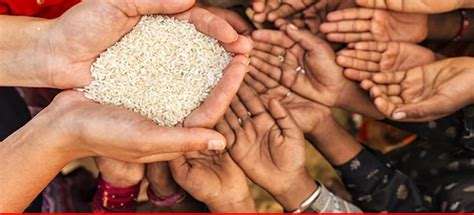In a heartbreaking incident that has once again brought to the forefront the ongoing plight of the Ahmadiyya community in Pakistan, an Ahmadi man was arrested on blasphemy charges for distributing langar (free food) during the sacred 10th of Muharram, known as Ashura, in Gujranwala, Punjab. The police arrested him on July 6, 2025, for allegedly identifying himself as a Muslim while serving food, a practice deeply rooted in charity and community support, yet stigmatized as blasphemy in Pakistan due to the country’s laws targeting Ahmadis. This man, simply providing a meal to those in need, now finds himself behind bars on judicial remand for seven days, accused of violating Section 298(C) of the Pakistan Penal Code (PPC), a law that criminalizes certain actions of Ahmadis, including calling themselves Muslims or referring to their faith as Islam.
The complaint filed against him detailed a scene of tragic irony. The Ahmadi man, described in the report as distributing biryani at a langar, was allegedly seen “identifying himself as a Muslim and speaking and acting like a Muslim.” In this land where one’s faith can be a matter of life or death, even an act of charity becomes a perilous crime if one belongs to the wrong sect. This incident paints a grim picture of a society where religious intolerance thrives, leaving vulnerable communities like the Ahmadis to suffer in silence.
The arrest took place after a citizen filed a First Information Report (FIR), claiming to have seen the man distributing food and performing actions associated with Islam. The complainant stated that he called for assistance, and upon being confronted, the man fled the scene. Yet, the tragedy lies not in the man’s flight, but in the injustice that follows. For the simple act of distributing food, an act that transcends sectarian divisions and seeks only to feed the hungry, the man has been branded a criminal. His sin? Simply existing as an Ahmadi in Pakistan—a community whose very identity is criminalized.
This is not an isolated incident. The treatment of the Ahmadi community in Pakistan has long been a source of concern for human rights organizations and activists around the world. The Human Rights Commission of Pakistan (HRCP) has repeatedly highlighted the systemic persecution faced by religious minorities, with Ahmadis at the forefront of this discrimination. In its recent report, HRCP outlined the increasing weaponization of blasphemy laws against the Ahmadi community, noting that the majority of blasphemy cases against them are initiated by law enforcement officials themselves.
As of October 2024, more than 750 individuals were imprisoned on charges of blasphemy, with a disturbing number of these cases involving Ahmadis. The report also revealed a chilling rise in mob-led attacks against religious minorities, including desecration of Ahmadi graves and violence against their places of worship. The lives of Ahmadis have become a daily struggle, caught between the constant threat of mob violence and the ever-looming shadow of blasphemy charges.
In a heart-wrenching statement, PPP Senator Sherry Rehman condemned this recent arrest and expressed hope that the government would annul the FIR against the Ahmadi man. Yet, even as political figures call for justice, the reality on the ground remains grim. The Lahore High Court Bar Association’s recent letter to the Punjab police chief requested action against Ahmadis for participating in Islamic rituals during Eidul Azha, a stark reminder of the widespread legal and social barriers that suffocate the rights of this marginalized group.
The HRCP’s report also sheds light on the broader implications of such laws and actions. The Ahmadi community, often subject to arbitrary detention, faces increasing risks of violence. The country’s legal system continues to fail them, with many Ahmadis arrested, their graves desecrated, and their religious practices attacked by extremist forces. In the absence of meaningful protection from the state, the community finds itself trapped in a cycle of violence and oppression.
One of the most distressing findings of the HRCP report was the role of social media in inciting hate and violence against Ahmadis. Disinformation campaigns on platforms like Facebook and Twitter fuel these attacks, spreading false accusations of blasphemy and further deepening the divide between different religious communities in Pakistan. These online mobs often lead to real-world violence, with Ahmadis being targeted simply for being who they are.
This incident and the ongoing persecution of Ahmadis paint a devastating picture of religious intolerance in Pakistan. It serves as a reminder that the right to practice one’s faith is not a privilege, but a basic human right. The Ahmadi community, like all communities, deserves the freedom to live without fear of arrest, violence, or discrimination. As the world watches in horror, Pakistan’s government must take immediate action to safeguard the rights of its religious minorities and end the unjust treatment of the Ahmadiyya community once and for all.
For too long, the voices of Ahmadis have been silenced by the oppressive weight of discriminatory laws and the hatred of extremist forces. It is time for the world to stand in solidarity with them, to call for an end to this senseless persecution, and to demand that justice be served. In the face of such hatred and injustice, the strength of humanity will be tested—will we remain silent, or will we rise to speak out for those who have been silenced for far too long?
